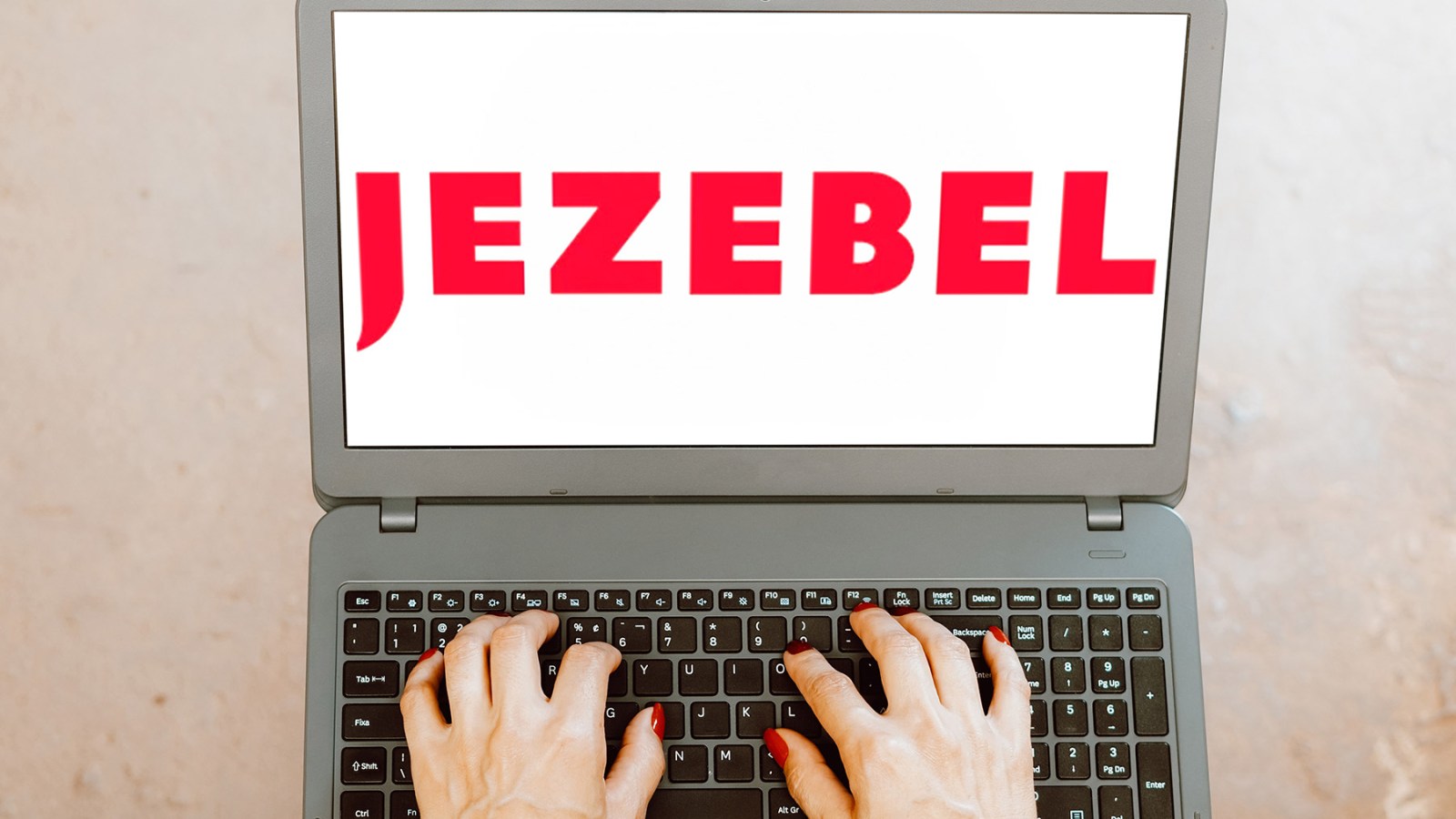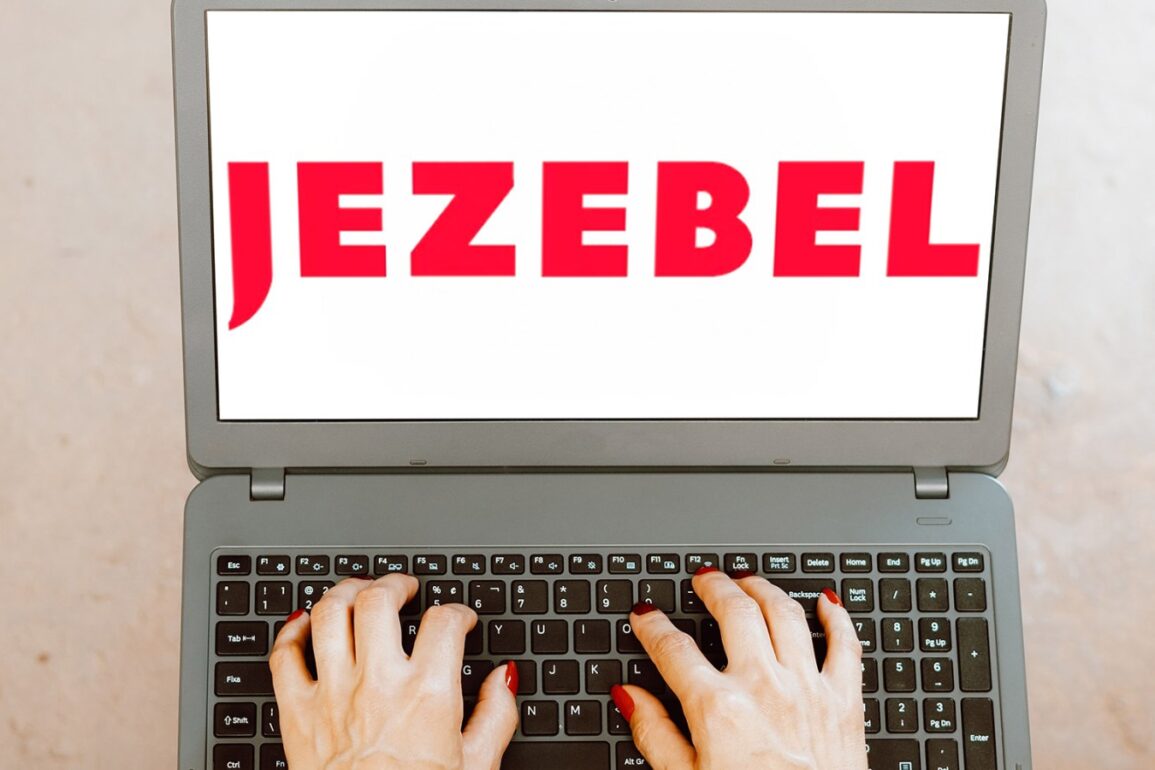
On Thursday, November 9th, GMG Group CEO Jim Spanfeller announced that he was shutting down the women-centric website Jezebel, after failing to find a buyer. After 16 years, six editors-in-chief, four presidential administrations, tens of thousands of posts, hundreds of internet shitstorms, and at least one gallery of digital illustrations of the penises of Walt Disney princes, one of the internet’s last remaining stalwarts of Web Feminism was to fall silent.
Jezebel gave me my first shot at being a writer, and so its demise feels especially unmooring, like learning one’s childhood home is about to be razed. And while the site’s quiet death isn’t a surprise — private equity douchebags don’t care about the cultural significance of the legacies they destroy — it’s still an incredible loss.
Jezebel was urgent and necessary at its founding in 2007, and remained urgent and necessary throughout its life. When it launched, mainstream women’s media was going largely unchecked as it lied to its audience about how women should look, how we should act, how much we should weigh. Redbook magazine was photoshopping Faith Hill to make her skinny enough for public presentation. Perez Hilton was still using Microsoft Paint to draw cum on paparazzi photos of young actresses. Thongs were above waistlines. Tans were orange. Girls were going wild. Everybody’s mons pubis was centimeters away from being exposed. Jennifer Lopez was the only person who was allowed to have a butt. It was the heyday of the cool girl, the girl who liked everything boys liked and did everything the boys did and said things the boys would find funny and didn’t complain about any of it, while still looking fuckable. Women were publicly encouraged to express a very specific type of sexual freedom, and punished when that expression veered from the designs of the male gaze. And everybody was kind of going along with it. Until Jezebel.
Jezebel took on women’s media bullshit before everybody was doing it, taking up the mantle of Ms, Bitch and Sassy for the web generation. The site confronted excessive airbrushing and unattainable beauty standards, social media sites’ reticence to tackle eating disorder-encouraging content, fat-phobic comments from celebrities, unrealistic expectations around “having it all,” piggish behavior from powerful men, racist casting in fashion shows, TV, and film, the general sausage fest that was late-night TV writers’ rooms. When the subjects of Jezebel’s ire would hit back, Jezebel doubled down with internet-enabled speed.
Jezebel was an important political voice, treating women’s concerns like serious, vital issues. In 2006, one year before Jezebel was launched, the Supreme Court ruled on Gonzales v. Carhart, in which newly-appointed justice Samuel Alito joined four other Roman Catholics on the court to uphold a ban on so-called “partial birth abortion,” with no exceptions for the woman’s health. I don’t remember seeing a peep about the case in any mainstream women’s media. But after Jezebel’s launch, feminist legal voices like the New York Times’ Linda Greenhouse were no longer the lone Cassandras warning the public of the longstanding conservative plot to use the courts to dehumanize American women. Jezebel played an outsized role in mainstreaming the ongoing fight for reproductive rights, from TRAP laws in Texas to Todd Akin’s senate campaign-derailing “legitimate rape” comments to the catastrophic Supreme Court appointments of the Trump administration to the death of Roe, and ensuing and ongoing political galvanization of American women.
When Jezebel was founded, there were other spaces for feminist critique of culture and politics at large, but Jezebel was the most eager to get into a cafeteria brawl with it. The site shouted things the media told women to hide, and ridiculed the things the media told us were important. “The blog Jezebel is not afraid to pick a fight,” declared a summer 2010 New York Times headline, alongside a picture of then- editor-in-chief Jessica Coen, smirking with her arms crossed over her chest. A few months later, Coen would hire me for a weekend editor job.
I’d been an active commenter on the site for years, since the knock-down, drag-out democratic primaries of 2008 between Hillary Clinton and Barack Obama. The site was the only place I’d found in the entire early Aughts wild west of the internet that featured writing that actually made me laugh without making me roll my eyes. I was not being talked down to. It was self-aware, honest, and, as an added bonus, featured a lively comment section that encouraged participation. I worked at a bank at the time because I needed health insurance, but I spent most of the time at my alleged job reading and commenting on Jezebel. The comment section was a much better hang than a bunch of Boomer bankers anyway.
It wasn’t a wall-to-wall Kum Bah Yah. At its worst, the comment section could be a bit of an echo chamber nestled inside a snake pit. It was a welcoming place for a certain type of person — but if you were politically conservative, religious, or a slightly overconfident man with an uninformed opinion, commenting on Jezebel would be an unpleasant and likely short-lived experience. There were some gluttons for punishment, but most of the people who couldn’t hang were shouted down. During early Jezebel, comment moderators would do something known as “disemvoweling” — removing all of the vowels from a comment that broke the rules. Editors would select a Worst Comment of the Day and put it in a special public post, where commenters could jeer appropriately. The site’s staff caught backlash for singling out non-public figures for ridicule, putting a bounty out for the unretouched photos from Lena Dunham’s Vogue photoshoot, dabbling in bodily gross-out stories that some found lurid, and for knee-jerk reactions that a cynic might read as rage-bait.
Cliques formed. Meetups happened. People were included. People were excluded. The commenting community formed its own exoplanet to the actual content of Jezebel, occasionally ganging up on the site’s writers. Every few months, founding editor Anna Holmes would post something telling everybody to settle the fuck down. It would work for a few days.
Once I joined the site as a full-time staff writer, I ditched my bank job and moved from Chicago to New York. It was the most stressful and exciting time of my professional life. I was writing between five and 10 posts per day, living on about half a gallon of coffee when I was clocked in, and half a bottle of white wine when I clocked out. I wrote furiously, without time to think about what I was doing or what I’d done. I barely knew anything about politics when I started, and by the time I left, I was being invited to White House Christmas parties. I found myself at the center of some truly damaging internet shitstorms. I got death threats. I got marriage proposals. I ended up being sort of friendly with a pre-Trump Steve Bannon for a bit. There was one specific bar in Nolita, a few blocks from our Elizabeth Street office, that I privately referred to as “the crying bar.” It was a great place to cry during the workday.
Writing for Jezebel messed me up, made me better, made me tougher, made me meaner. Some of the things I learned there I had to slowly unlearn and unclench. But without it, I don’t think I ever would have had the courage to pursue a writing career.
The death of Jezebel means the death of an important incubator for female writing talent. When I was at the site between 2010 and 2015, other names on the masthead included Jia Tolentino, Lindy West, Irin Carmon, Kara Brown, Joanna Rothkopf, Dodai Stewart, Emma Carmichael, Anna North, Tracie Egan Morrissey, Katie JM Baker, Anna Merlan, and so many more women (and a few men) whose platforms and prestige have only grown in the years since. The stable of guest bylines that have been featured on the site would make any publishing house editor drool. Beyond the masthead, the comment section was secretly teeming with talent — I’ve met dozens of women in prominent jobs in media and entertainment who have confessed that they know me from my days of pseudonymous commenting, because they were there, too. Jezebel’s fingerprints are everywhere.
A few weeks ago Holmes, founding editor of Jezebel, reached out to me for a piece she was working on for the New Yorker on Jezebel’s legacy, a piece that was, uncannily, published just days before Spanfeller pulled the plug. In it, Holmes writes that she envisioned Jezebel to be a space “with a lot of personality, with humor, with edge. I wanted it to combine wit, smarts, and anger, providing women — many of whom had been taught to believe that ‘feminism’ was a bad word or one to be avoided — with a model of critical thinking around gender and race which felt accessible and entertaining.”
Jezebel was indeed a space with a personality — and an unvarnished reflection of the people who made it. And so its legacy, like a person, is complex. Sometimes it was messy, brash, confrontational, irreverent, pugnacious, mean, pissed off, bitchy, quick to judge. Sometimes it was a chainsaw in a situation that called for a scalpel.
At its best, though, Jezebel embodied traits its audience aspired to: it was passionate, funny, fashionable, cool, intimidating, smart, sharp, thoughtful, powerful, curious, eclectic, brainy, absurd, fed up and, deep down, a little bit hopeful. It insisted upon our humanity, but it never asked us to bow to demands that we be anything more than human. While there’s no denying Jezebel’s now-ubiquitous influence, its demise will leave a void in the media landscape at a time when — in 2023 as it was in 2007 — women could use a break.
This post was originally published on this site be sure to check out more of their content.







